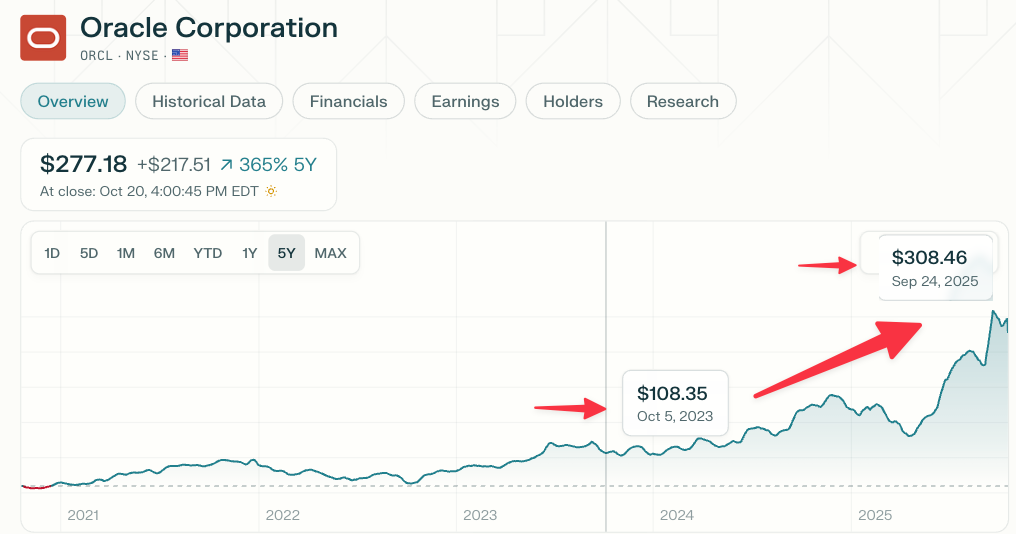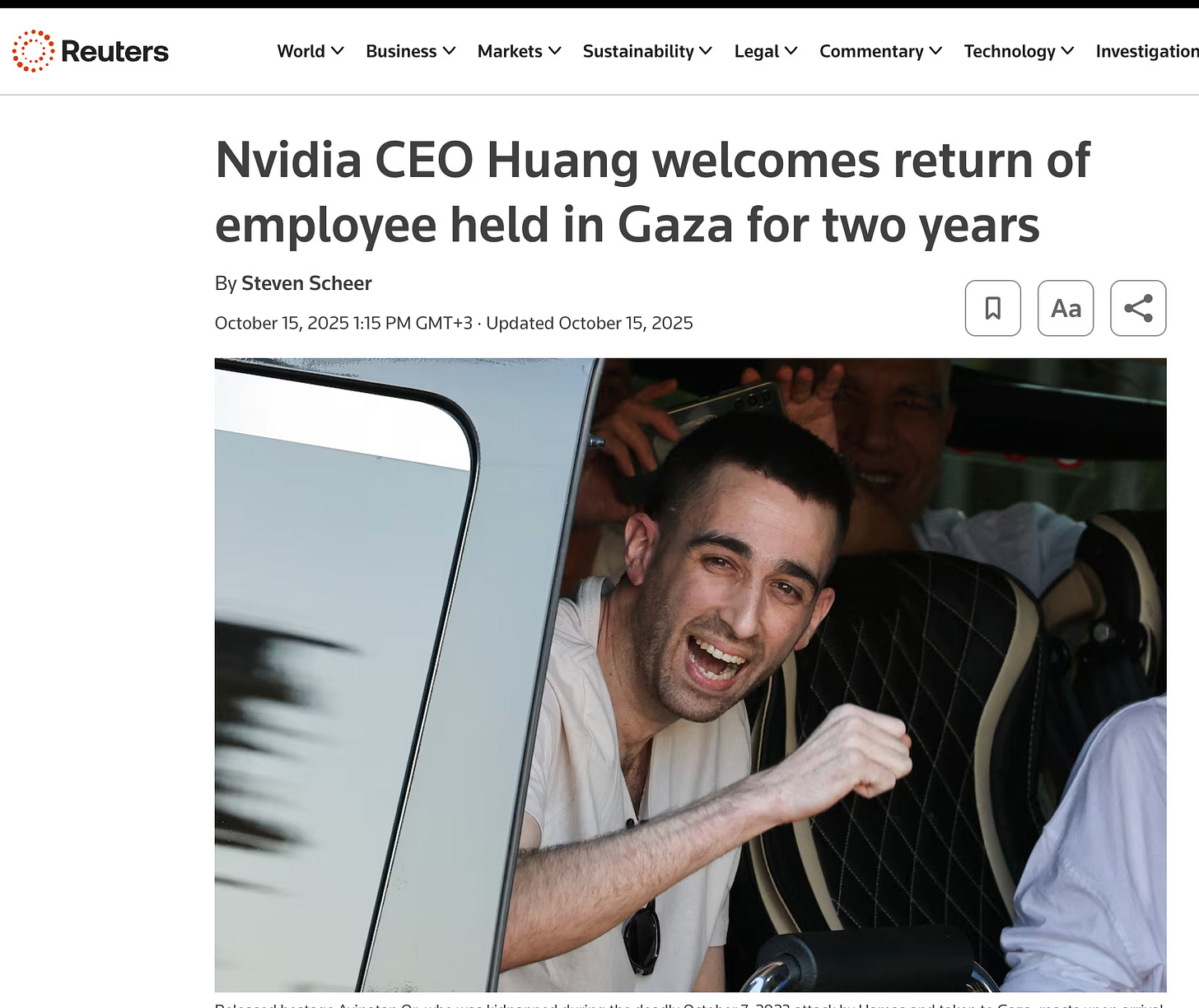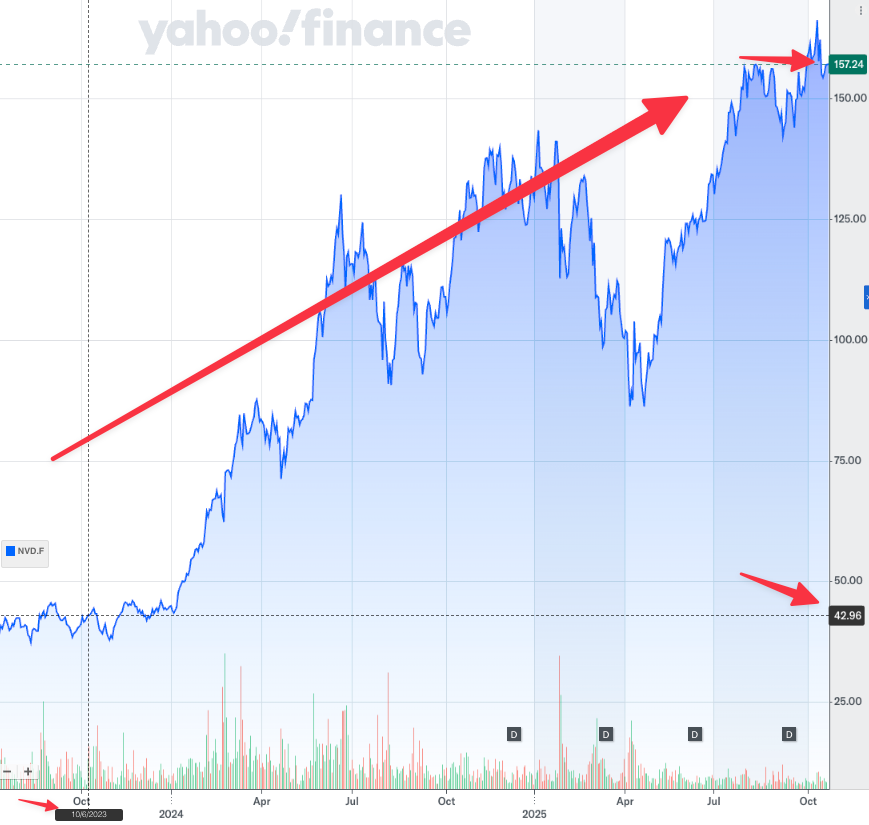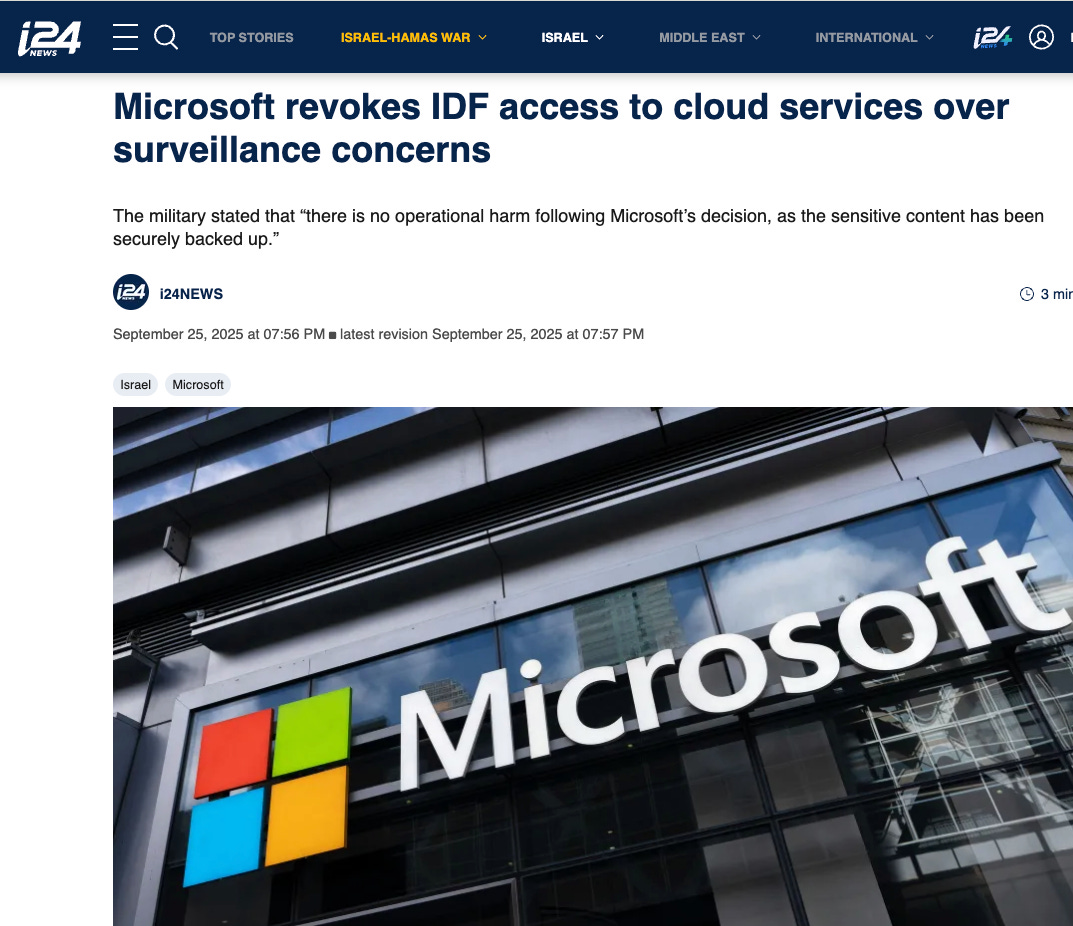Why Oracle and Nvidia Are Leaning Into Israel
Of the Big Tech companies, Oracle and Nvidia alone have made Israel central to their corporate identity. Shareholders are rewarding them.
Welcome to Israel Tech Insider. I’m Amir Mizroch, a tech communications advisor and former EMEA Tech Editor at The Wall Street Journal. This newsletter connects the dots to give you a sharp, insider’s take on what’s really going on inside Israel’s tech economy. Please consider becoming a paid subscriber to support my work. As always, feedback to amir@israeltechinsider.com
Why Oracle and Nvidia Are Doubling Down on Israel
While many global tech firms tread carefully around war-time Israel, Oracle and Nvidia are leaning in. Their decisions are not acts of virtue-signaling but calculated bets on a country whose innovation engine keeps running through crisis. For both firms, Israel is a strategic asset that outweighs their corporate reputational risk.
Oracle: Sovereign cloud, extreme infrastructure
Oracle’s stance is both explicit and embodied. After the October 7 attacks, Oracle posted “Oracle stands with Israel” in multiple languages across its global websites, provided Israeli employees with double salary payments, made a $1 million donation to Magen David Adom, and launched a global employee fundraising campaign for Israeli relief causes, matching every dollar raised.
The company’s leadership, including former CEO Safra Catz—one of the highest-profile Israeli-Americans in global tech— and founder Larry Ellison, have repeatedly stated that supporting Israel is integral to Oracle’s values. Catz has repeated the “We stand with Israel,” ever since, positioning the country as both a moral and strategic partner.
The company operates an underground data center in Jerusalem, 50 meters below ground and hardened against missile strikes, and has confirmed plans for a second, deeper facility. The goal: guarantee sovereign-capable cloud services for governments, hospitals, and defense clients that cannot afford disruption. Oracle is also working more directly with Israeli defense bodies on edge-AI and mobile data-centers that bring AI to the battlefield.
While some of these deployments are operationally secret, the overall embrace of wartime Israel is public, explicitly so. Oracle wants people to know that Israel is where Oracle stress-tests the future of mission-critical computing for regulated industries like defense, government, health, and finance. Israel becomes a “proof-lab” for resilience and sovereign-cloud services that Oracle intends to export globally. With global defense spending booming, this is a smart bet by Oracle.
The Humans of Huang’s Nvidia
Nvidia’s support for Israel has been quieter but no less sweeping. After October 7 2023, the company led a $15 million humanitarian fundraising drive—the largest in its history. This year it began scouting land in northern Israel for a new mega-campus of up to 180,000 m², expected to employ thousands of engineers and anchor Nvidia’s chip-to-AI-system ambitions.
Then came the story that gave all this weight. Avinatan Or, a 32-year-old Nvidia electrical engineer kidnapped at the Nova music festival, was released in October 2025 after 738 days in captivity. For two years, Nvidia Israel’s HR chief sent weekly emails counting the days, and every quarter Jensen Huang mentioned Or’s name in global meetings to remind 40,000 employees that one of their own was still missing.
When Or finally returned, his manager wrote: “I hope you have a good excuse for not showing up to work for 738 days… and I also have some pretty good news about what’s happened with your stocks over the past two years.” It was a note equal parts humanity and capitalism—proof that loyalty and value are not opposites in this business.
Big Tech, Small Backbone
Other major tech players hold Israel operations but their posture is commercial rather than values-driven. Amazon had its own Israeli hostage, Sasha Troufanov, a 29-year-old AWS electrical engineer who was kidnapped by Hamas from Kibbutz Nir Oz, along with his family. Troufanov was finally released in February 2025 after 498 days in captivity, as part of a ceasefire-hostage deal. Amazon did not publicly comment on Troufanov’s abduction while he was captive, explaining that any statements could risk his safety and negotiations for his release.
While Google hasn’t expressed anything publicly one way or another, in 2024 it fired dozens of Google workers who protested the company’s cloud contract with the Israeli government. In July this year, Google co-founder Sergey Brin called the United Nations “transparently antisemitic” after it published a report on companies, including Google, that profit from working with Israel, The Washington Post reported.
Meanwhile, Microsoft expanded its Israeli Azure cloud region in 2023 but has buckled to internal pressure to sever its Israeli military sector links.
Risk, Resilience, Reward
Oracle and Nvidia alone have made Israel central to their corporate identity rather than a peripheral operation. The upside: Oracle gains proximity to premier engineers, sovereign-cloud demand and resilience credentials. Nvidia embeds itself in a deep talent pool and locks in scale for next-gen AI architecture. But the risks are real: Oracle’s open alignment may alienate customers or employees in markets sensitive to the Israel-Palestine conflict. Nvidia’s high cap-ex campus in a volatile region could suffer disruptions from geopolitical, supply-chain or regulatory shocks. But they are both betting that the future of compute and cloud will not just run through Silicon Valley but also through Tel Aviv and Haifa.
Oracle and Nvidia showed that resilience pays dividends, that in Israel, the moral and the material are converging, and that the companies willing to stand firm in hard times will also be the ones holding the most valuable stock when the dust settles.
The (War) God of Little Things
Israel’s defense establishment is undergoing its fastest structural rewiring since the 1973 Yom Kippur War. Then, as now, the initiative is reactionary — born of failure rather than out of doctrine. The Israel Defense Forces (IDF) Southern Command’s surprise defeat on October 7, 2023 exposed critical flaws: the vaunted US$1 billion Gaza-border sensor-network collapsed under cheap drones and basic hacks; the initial response was slow and disjointed; Hamas’ tunnel network exploited blind spots; and fighting while protecting hostages paralyzed decision-making.
The failure was as much organizational as technological. Over-reliance on technology, entrenched group-think, and mis-read intelligence meant doctrine didn’t match battlefield reality. In response, Israel is turning directly to “network resilience” as its new priority. On the front line, commanders are deploying real-time live-map overlays to track every soldier, automated sensor-software to detect guerrilla ambushes and AI-augmented portable command-kits that keep units fighting even if headquarters is knocked out.
Behind the scenes, engineers have compressed R&D cycles from years to weeks. The defense-tech boom is unmistakable: hundreds of startups founded since October 7, and a state-backed, billion-shekel investment scheme now channels government guarantees into smaller firms once overshadowed by Elbit, Rafael and IAI. The logic: wars now are software problems deployed through hardware constraints, and advantage flows to the nation that integrates fast and recovers lost momentum faster.
Yet speed introduces new vulnerabilities: cyber-exposure, power grid fragility and an over-reliance on an off-shore manufacturing base (AKA America). At the same time, global arms-embargo pressure mounts even as Israel’s defense-industry exports continue to rise. The future of Israeli security will hinge less on missiles and more on the industrial, digital and human web linking sensors to soldiers, factories to battlefields, code to combat.
For more of my writing chronicling how Israel’s defense establishment is retooling for AI war, check out:










Interesting article, Amir.
The trend that you described around smaller defence tech startups is happening in many countries nowadays. I think that the demand for defence led to governments being more open to working with smaller suppliers. I've recently seen an article in The Economist about a similar trend in the UK. Here's the article: https://www.economist.com/britain/2025/03/19/why-british-spooks-are-reaching-out-to-the-private-sector
I think that they mention that in the US, there's a somewhat similar trend too. Not sure about Canada, but I saw at least one example of something like this as well.
Good article Amir. I am pleased that leading tech companies like Oracle and Nvidia are confidently investing in the great country if Israel. Thankyou